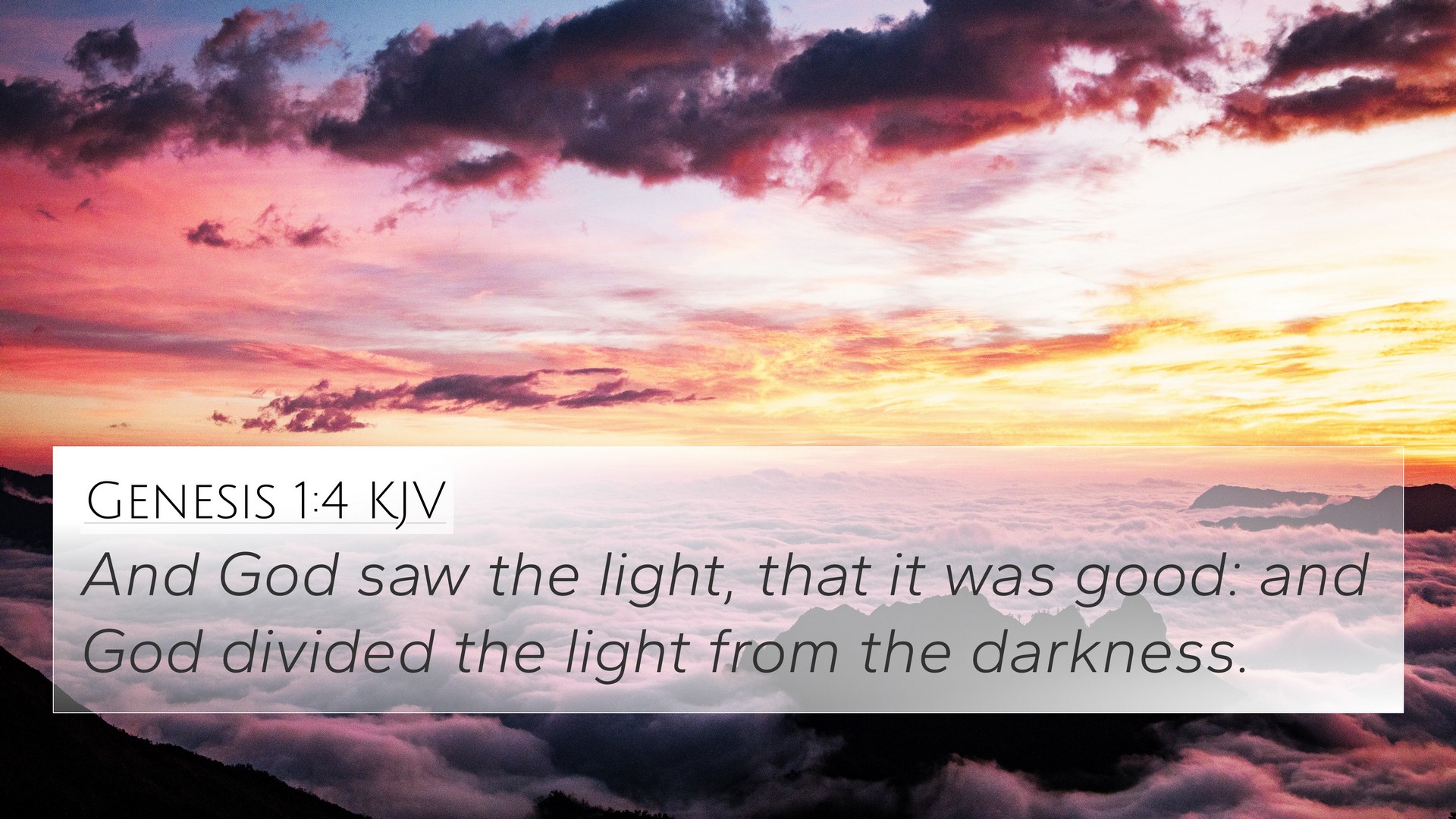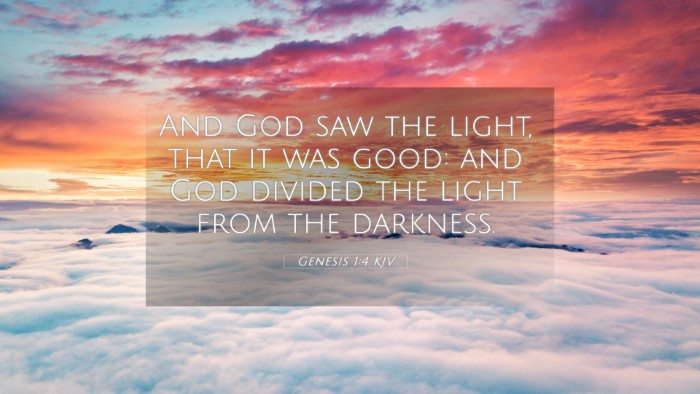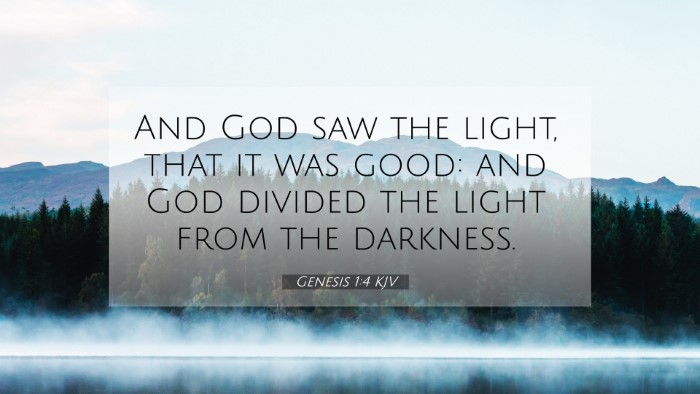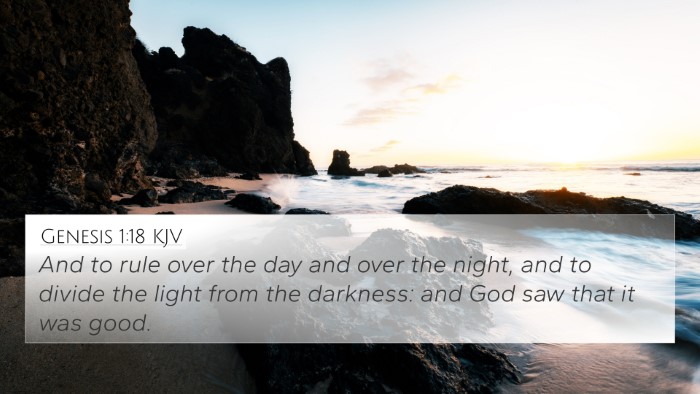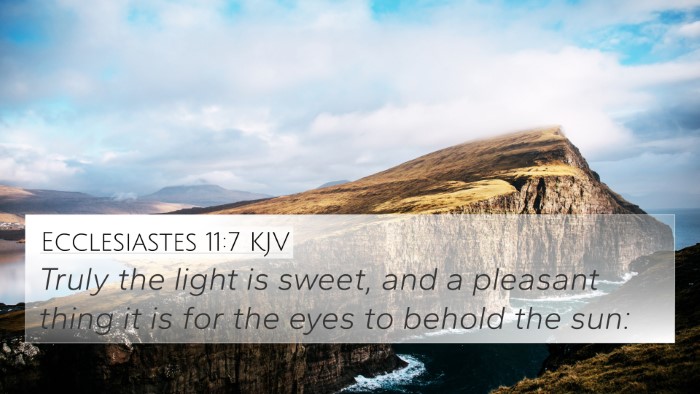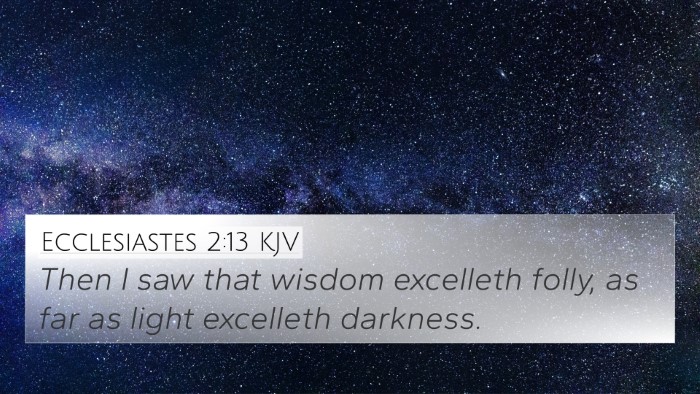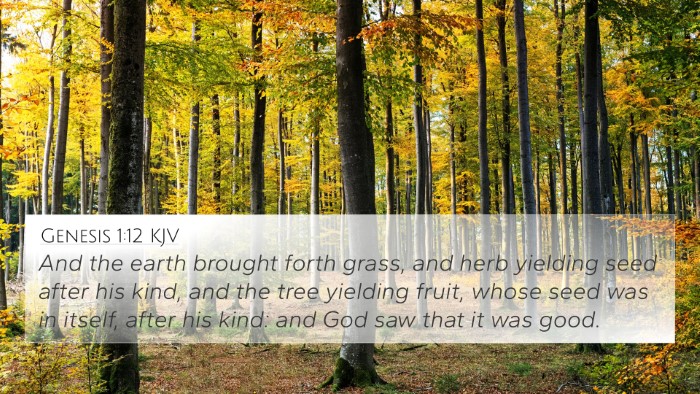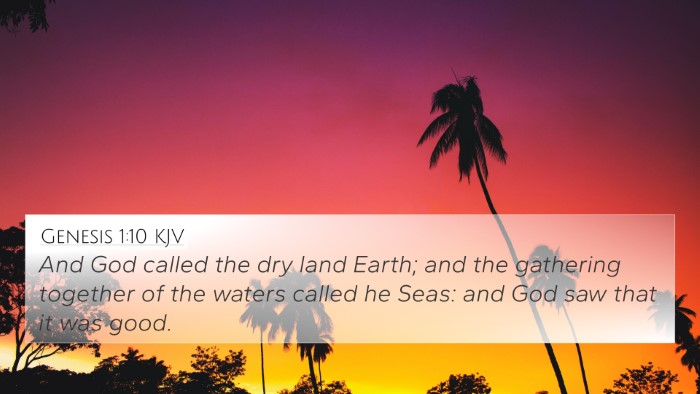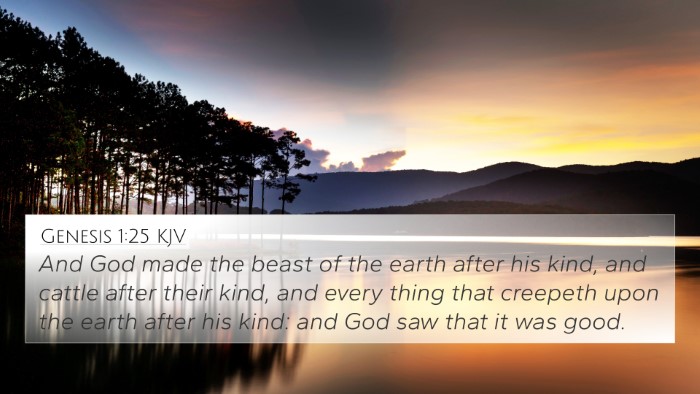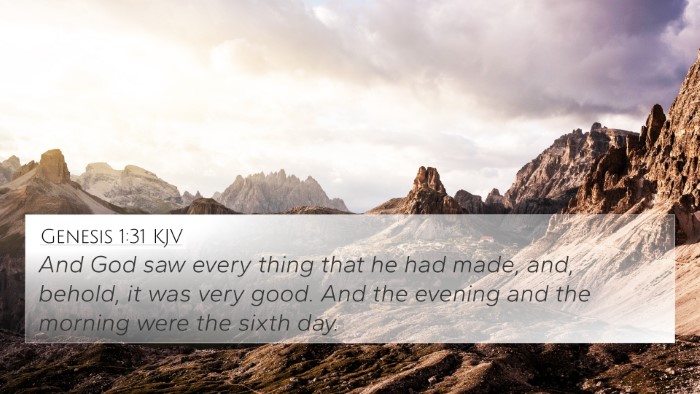Understanding Genesis 1:4
Bible Verse: Genesis 1:4 - "And God saw the light, that it was good: and God divided the light from the darkness."
General Meaning
The verse Genesis 1:4 presents a significant moment in the creation narrative, highlighting God's judgment on His creation. In this verse, God observes the light He created and declares it good, while simultaneously differentiating it from darkness. This act of division sets a foundational principle within the cosmos, establishing order and providing insight into God’s nature as a creator who discerns between good and evil.
Commentary Insights
-
Matthew Henry:
Henry emphasizes the goodness of creation, indicating that God's declaration of light as "good" reflects His perfect will. He notes the significance of light, which symbolizes purity, truth, and understanding, contrasting with darkness, often associated with evil and ignorance. God’s act of division showcases not just the power of His word but also the moral order that He establishes in the universe.
-
Albert Barnes:
Barnes discusses the theological implications of God seeing the light and calling it good. He interprets this as God affirming the essential nature of light as beneficial and life-giving. Furthermore, the separation from darkness implies a cosmic battle between good and evil, which resonates throughout the scriptures. The distinction between light and darkness can be seen as a precursor to deeper biblical themes surrounding sin and redemption.
-
Adam Clarke:
Clarke provides a linguistic analysis, exploring the Hebrew terms for light ("or") and darkness ("choshech"). He highlights how these terms represent not only physical realities but also spiritual truths. Clarke points out that God's declaration of light as good signifies a fundamental truth about the Creator's intentions: to promote life and facilitate understanding for humanity. By separating light from darkness, God gives humanity a moral framework within which to operate.
Bible Verse Cross-References
This verse interconnects with numerous other scriptures that reinforce its themes. Below are some key Bible verses that relate to Genesis 1:4:
- John 1:5: "And the light shineth in darkness; and the darkness comprehended it not." - This verse connects to the understanding of light overcoming darkness.
- 1 John 1:5: "This then is the message which we have heard of him, and declare unto you, that God is light, and in him is no darkness at all." - Emphasizes the purity and goodness of God as light.
- Isaiah 9:2: "The people that walked in darkness have seen a great light." - Refers to the breaking of spiritual darkness through the coming of Christ.
- 2 Corinthians 6:14: "What communion hath light with darkness?" - Proclaims the inherent conflict and separation between light and darkness.
- Revelation 21:23: "And the city had no need of the sun, neither of the moon, to shine in it: for the glory of God did lighten it, and the Lamb is the light thereof." - Describes the ultimate fulfillment of creation's light in heaven.
- Philippians 2:15: "That ye may be blameless and harmless, the sons of God, without rebuke, in the midst of a crooked and perverse nation, among whom ye shine as lights in the world." - Reflects on the role of believers as lights in a dark world.
- Ephesians 5:8: "For ye were sometimes darkness, but now are ye light in the Lord: walk as children of light." - Call to live in the reality of light and separation from darkness.
Thematic Connections
Genesis 1:4 introduces several themes that echo throughout the biblical narrative, establishing foundational concepts such as:
- Creation and Order: God's creating action brings order to chaos, emphasizing His sovereignty.
- Goodness of Creation: The declaration of light as good showcases the intrinsic value of creation in alignment with God's will.
- Light vs. Darkness: This opposition becomes a recurring motif representing truth versus falsehood, good versus evil, and divine presence versus absence.
- Moral Accountability: The separation of light from darkness can be interpreted as a call for humanity to choose between righteousness and sin.
Cross-Referencing and Biblical Study
Understanding biblical verses through the tool of cross-referencing can significantly enhance the depth of study. Here are insights into tools and methods for effective biblical cross-referencing:
- Bible Concordance: Use a concordance to locate related scriptures based on key terms like "light" and "darkness."
- Bible Cross-Reference Guide: Utilize guides that categorize verses thematically, helping to make connections clear.
- How to Use Bible Cross-References: Explore passages that enhance your understanding of theological themes found in Genesis 1:4.
- Cross-Reference Bible Study: Engage in group studies focusing on light and darkness passages to encourage deeper discussion.
- Bible Reference Resources: Leverage online tools, study Bibles, and software designed for cross-referencing.
In Conclusion
Genesis 1:4 serves as a foundational verse within biblical theology, establishing key themes of creation, good versus evil, and the fundamental nature of God. By exploring connections with related scriptures and utilizing cross-referencing tools, readers can gain a rich understanding of the spiritual truths encapsulated in this verse.
